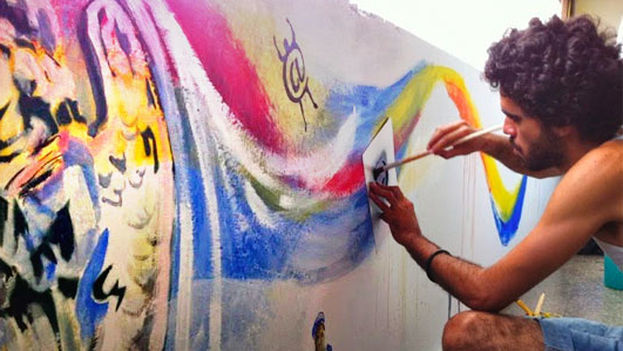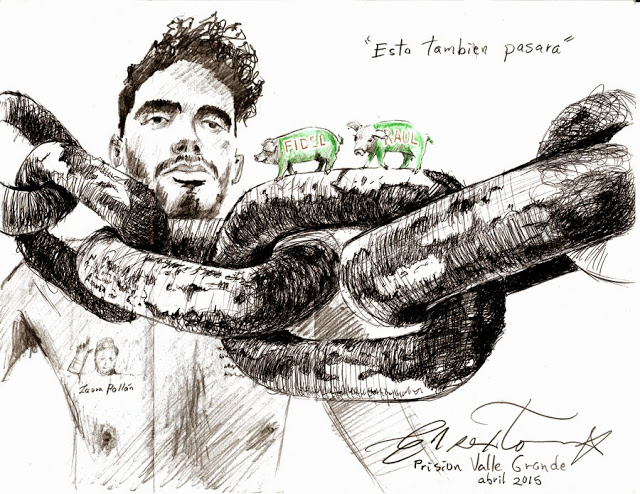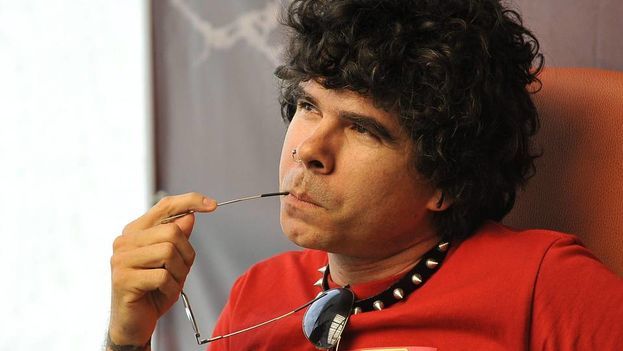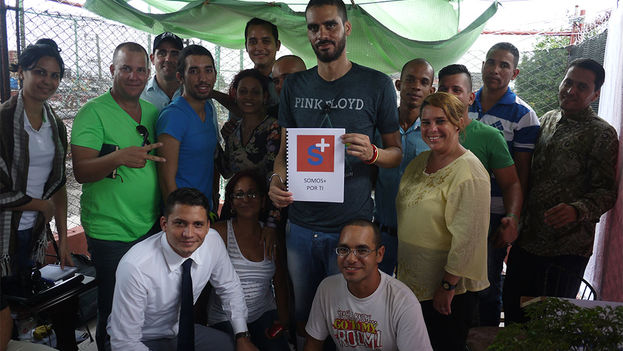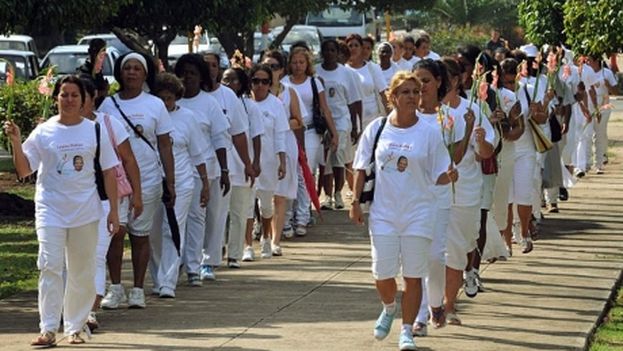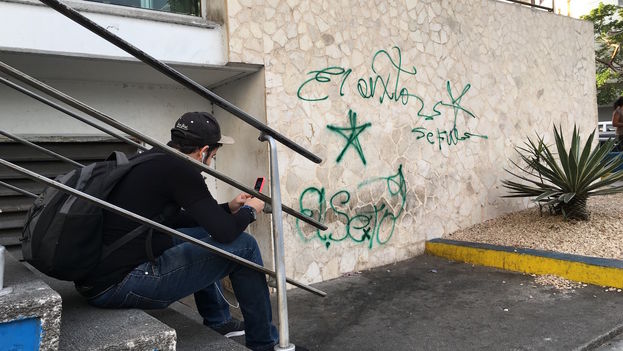
![]() 14ymedio, Mario Penton & Abel Fernandez, Miami, 2 December 2016 – The Cuban artist Danilo Maldonado, known as ‘El Sexto’ (the Sixth), declared a hunger strike this Thursday, according to reports to this newspaper from his mother Maria Victoria Machado. The artist’s decision comes six days after his arrest for having painted on a centrally located wall in Havana, the words “Se fue” – He’s gone – in reference to Fidel Castro.
14ymedio, Mario Penton & Abel Fernandez, Miami, 2 December 2016 – The Cuban artist Danilo Maldonado, known as ‘El Sexto’ (the Sixth), declared a hunger strike this Thursday, according to reports to this newspaper from his mother Maria Victoria Machado. The artist’s decision comes six days after his arrest for having painted on a centrally located wall in Havana, the words “Se fue” – He’s gone – in reference to Fidel Castro.
El Sexto’s fast comes amid worsening repression against the dissidence and independent journalists on the island, during the period of national mourning for the death of the former president.
“I had the first interview with the investigator who is handling Danilo’s case today. He told me that as of yesterday my son does not want to eat to demand his release,” Machado told this newspaper by phone. continue reading
Maldonado was arrested on 26 November after painting graffiti on the exterior wall of the Habana Libre Hotel, at the centrally located corner of 23rd and L in the Vedado neighborhood, and publishing a video on his Facebook page celebrating Castro’s death.
On Tuesday, family members of the artist denounced that he had been severely beaten and said he was holding firm against what he considers an injustice.
“Mamá, I have had a lot of aché (luck/blessing) to be a Cuban artist the day that bloody tyrant died and to be able to express myself. I’ll get out of here,” Machado said her son told her at the Guanabacoa detention center to the east of the capital.
According to Machado, her son is accused of damaging state property.
“When I asked the official what my son’s sentence would be for this crime, he told me just a fine, but then he started to talk about ‘historic conditions’ the country is going through and right there I told him that for me the state property demagoguery wouldn’t work,” she explained.
According to his mother, Maldonado has been beaten on several occasions since his arrest.
“He told me himself. In Guanabacoa two officers beat him up,” she explained. The police told her that El Sexto’s phone was given up for lost, but had finally been found in police custody.
Alexandra Martinez, Maldonado’s girlfriend who lives in Miami, said that El Sexto’s detention “shows the cruelty of the Castro regime that continues to violate its people.
“The regime must release Danilo immediately. His life, his health and his safety are in play and we need him,” she said.
Family and friends of the artist are working with three human rights organizations, an international attorney and several local attorneys on the release of the artist, Martinez said.
“This shows how fearful and insecure the Cuban regime is,” she added.
This Saturday the prosecution is expected to rule on El Sexto’s case.

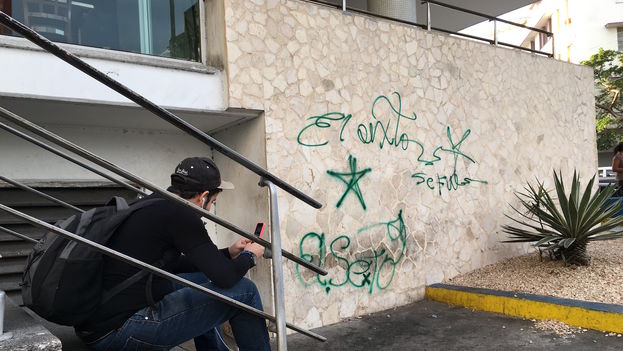
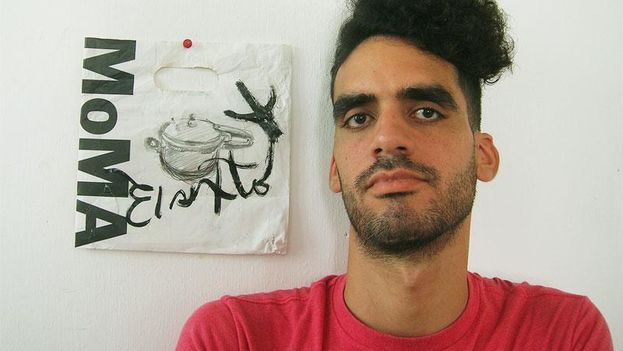
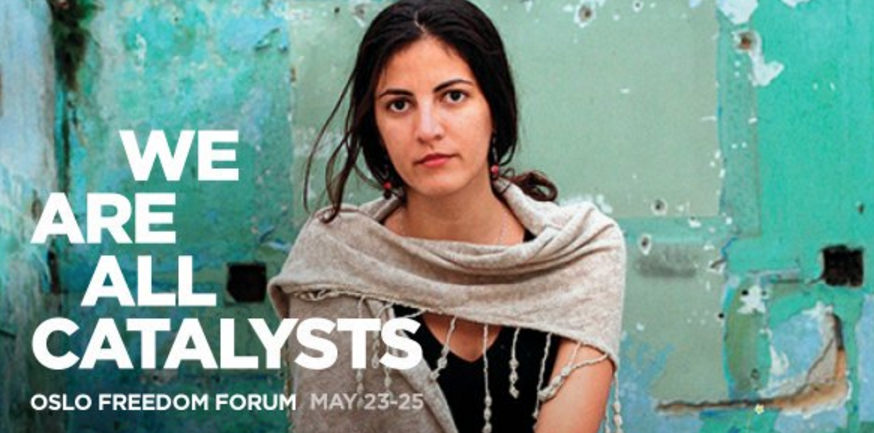
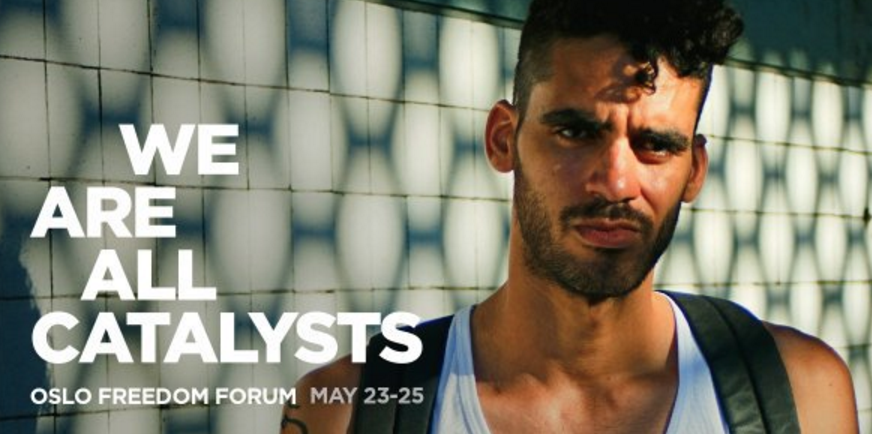
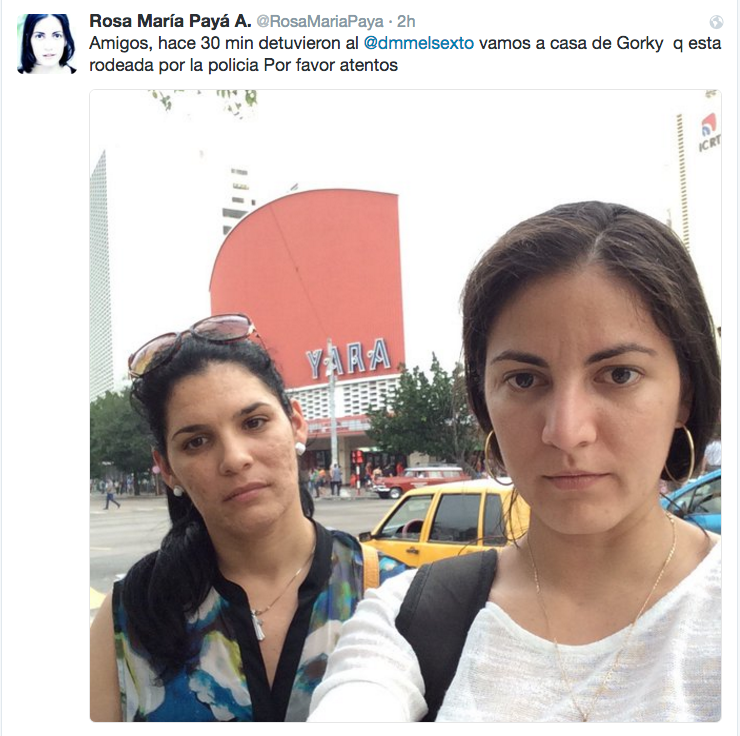

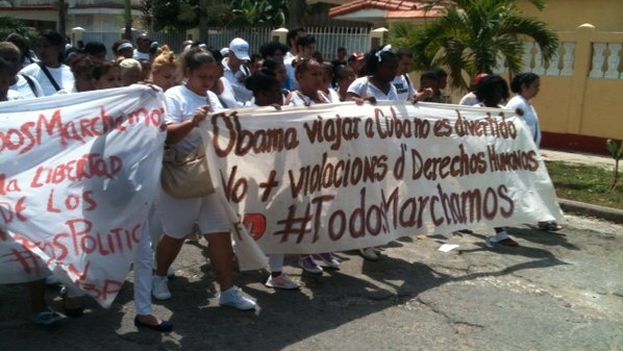
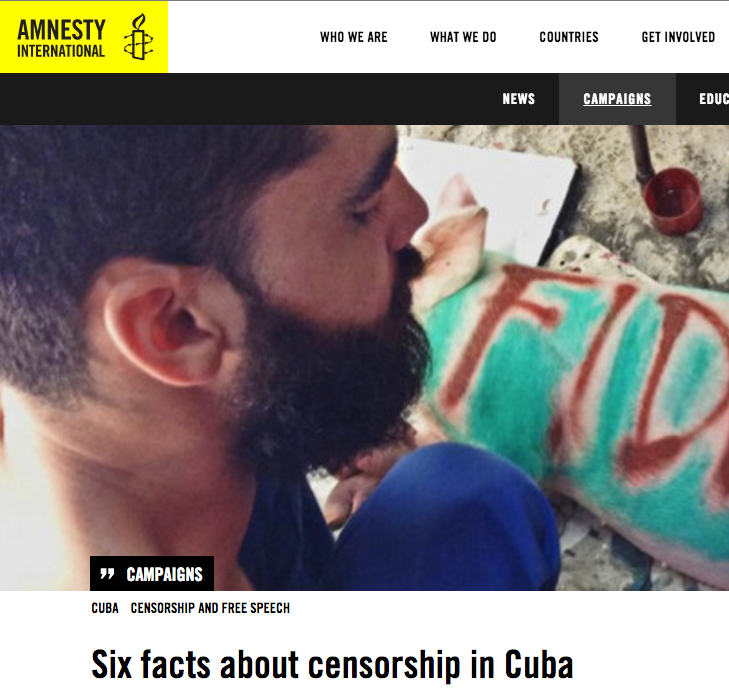
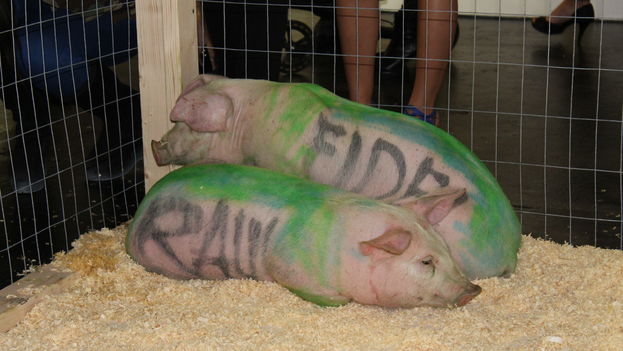
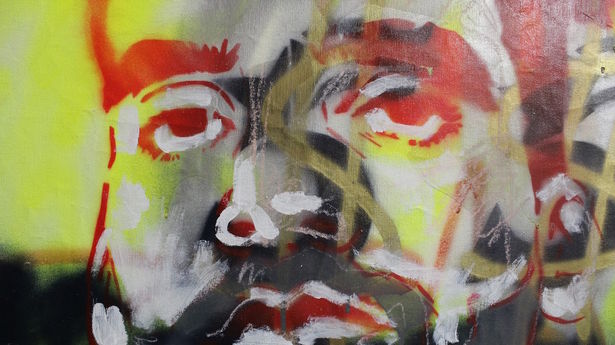
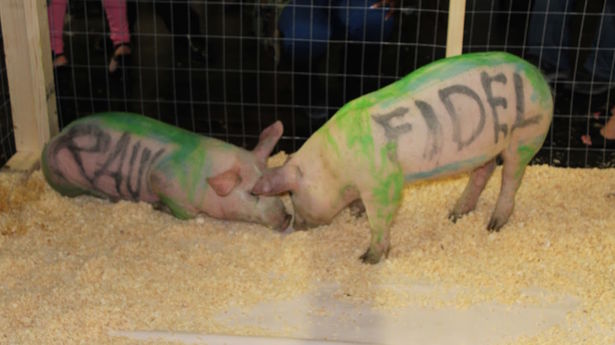
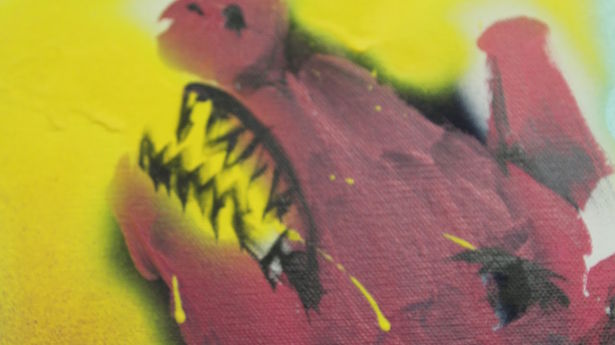
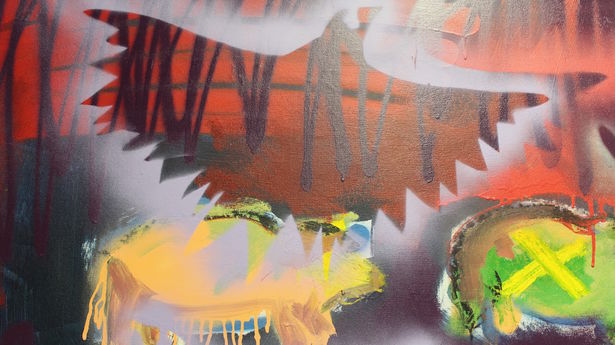
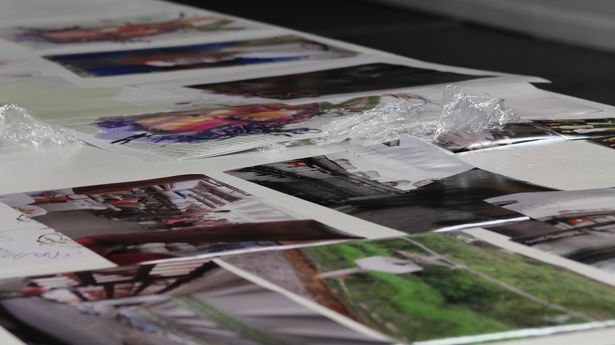
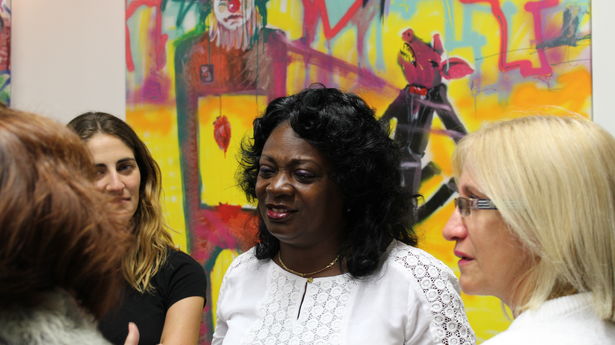
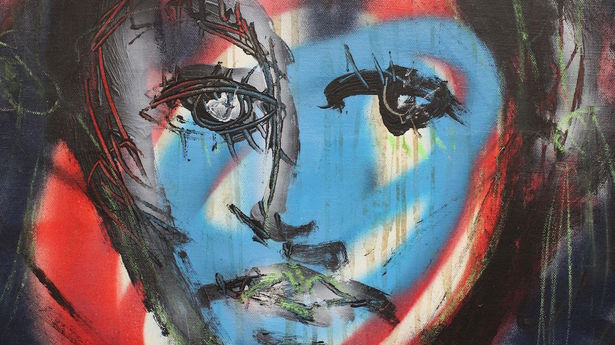

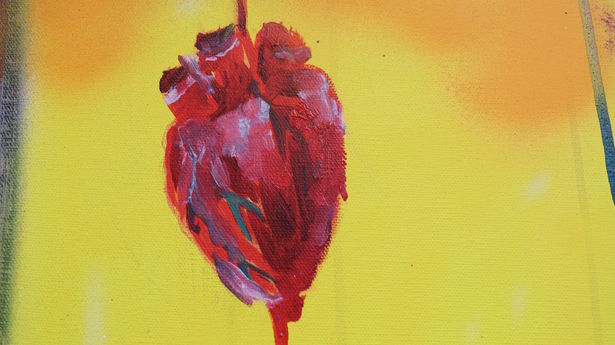
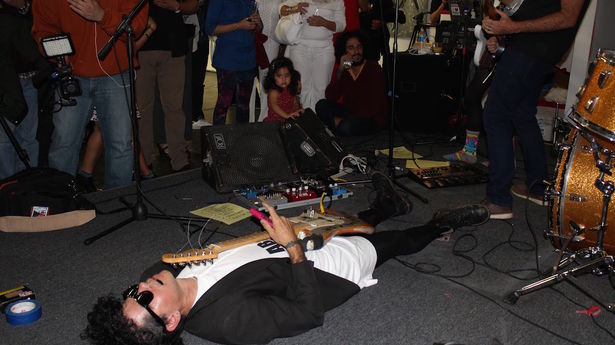
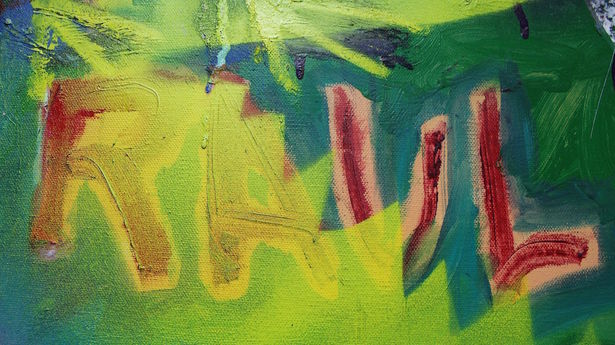
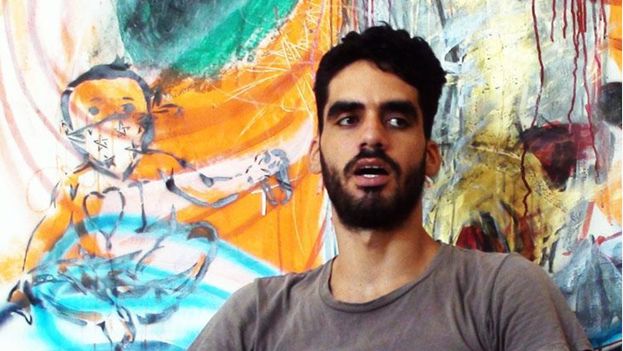
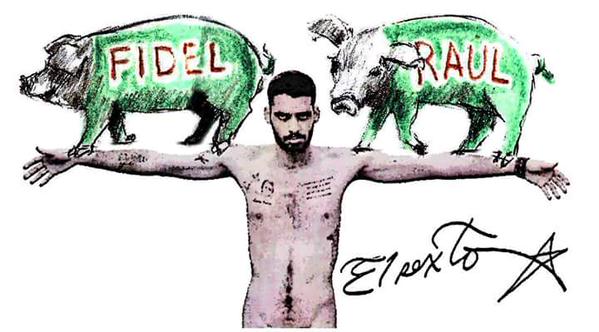 While behind bars he drew and wrote a kind of diary, when he was not in isolation, undertook a hunger strike, and was declared a prisoner of conscience by Amnesty International. He also won the 2015 Vaclav Havel International Prize for Creative Dissidence, awarded by the Human Rights Foundation.
While behind bars he drew and wrote a kind of diary, when he was not in isolation, undertook a hunger strike, and was declared a prisoner of conscience by Amnesty International. He also won the 2015 Vaclav Havel International Prize for Creative Dissidence, awarded by the Human Rights Foundation.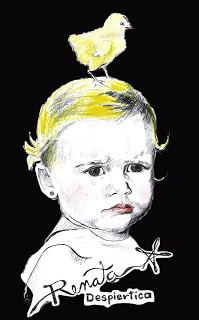 He has a daughter in Cuba, Renata Maria who is two-and-a-half, and he told EFE that everything he does “is to let her name rise higher.”
He has a daughter in Cuba, Renata Maria who is two-and-a-half, and he told EFE that everything he does “is to let her name rise higher.”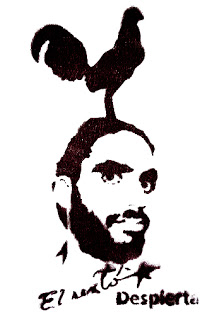 Cubans “waking up within” is, for El Sexto, the only way to change Cuba, apart from, clearly, “the [Castro] government stepping down,” a government that “has spent 50 years taking things from the people and exercising power by force.”
Cubans “waking up within” is, for El Sexto, the only way to change Cuba, apart from, clearly, “the [Castro] government stepping down,” a government that “has spent 50 years taking things from the people and exercising power by force.”